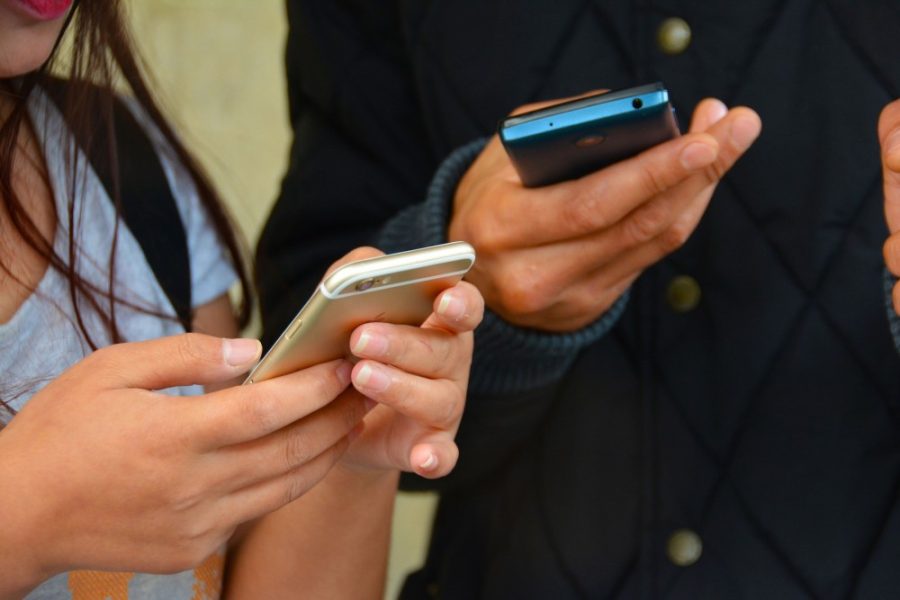According to CNN.com, the recent outbreak of the coronavirus has killed over 2,900 people. There have been around 85,000 diagnosed cases all over the world and the problem is serious enough that the University of Arizona has taken it into its hands to create new measures. In a recent email sent out on Feb. 27, the UA announced they would be banning any UA-associated travel to South Korea because of the virus.
If you aren’t living under a rock, you understand the serious implications of a global pandemic. Lives are being taken and people are getting scared, which causes everyone to react in different ways. Some people are being safer about what they touch, where they go and how long they are outside of the house. Basically, the civil and normal things people do when they are afraid or worried.
My generation, however, is taking it a little differently. The users of the social media app TikTok have decided to take their own approach to coping with the recent virus. For example, a young girl dancing in her room with the disco filter to a song behind her saying “it’s corona time,” or videos of people morphing into the corona beer cans with funny captions and relatable hashtags. Don’t believe me? Check out this YouTube video titled “Corona Virus Check New TikTok Challenge 2020.”
RELATED: TOPIC OF THE WEEK: Coronavirus is not beer-related and other health misconceptions
To sum it up, the younger generations – millennials and Generation Z – have a huge problem with irony in serious situations, a problem to the point where we can barely take anything seriously anymore. Even the scariest and most worrying problems in our world start as news to older generations but quickly morph into memes by the minds of the youth. To put it simply, we are in an age where we receive our critical information through desensitized Twitter memes.
Everyone deals with serious issues in different ways, including humor, but there comes a point where the humor gets turned into an unhealthy coping mechanism. When the rumors of World War III broke, the internet had an absolute field day. The amount of war memes I saw on my feed was honestly impressive. My favorite of the World War III TikTok memes were the ones that acted out a soldier doing the TikTok renegade dance and getting distracted and then being blown up by an actual renegade bomb. And the sad part – I actually laughed.
I am not the only one touched by the irony virus. Because of this, it is becoming more important to notice the unhealthy effects of desensitization. The main reason we make so many jokes is because we put on this facade of genuinely not caring about anything because it is what’s considered cool. Sadly, in our society, not caring about life and joking about dying or suicide is seen as relatable and edgy.
This concept connects to the way bigger problem of how depressed and damaged our youth is, and ultimately plays a huge role in our coping mechanism of humor. Not everything is funny, but if we can joke about the most serious things, it allows us to forget that they exist because they are punchlines and not realities.
We have started the conversation about mental health, but we have not yet taken the extra step to stop making jokes about it. If we are going to acknowledge mental health, we should also acknowledge the fact that we have unhealthy coping mechanisms. When I’m scrolling on TikTok, eight out of 10 of the comedy videos I see will have a punchline that is dark or sad and the comments are talking about how relatable it is. Then people keep scrolling and never stop to think about how unhealthy it is to relate to that dark humor.
The sense of community that is created through TikTok, Twitter and other social medias is so tight and comfortable because of how vulnerable people are on those sites. I am not saying people need to stop sharing their feelings and dark truths, but we should stop motivating coping mechanisms that gloss over the serious problems we have to face. And if we are going to use dark humor, understand your own relationship with the truths behind that five second joke so you are not ignoring your real problems.
Sometimes it really isn’t that deep, and jokes are jokes, but it has begun to reach a concerning level where people would rather tell a joke than find a solution. Our generation pioneered normalizing discussion and acceptance of mental health, but we have so much more growing to do when it comes to finding healthy coping mechanisms that do not involve trying to figure out the darkest jokes to get the most likes, followers or retweets.
Follow the Daily Wildcat on Twitter









